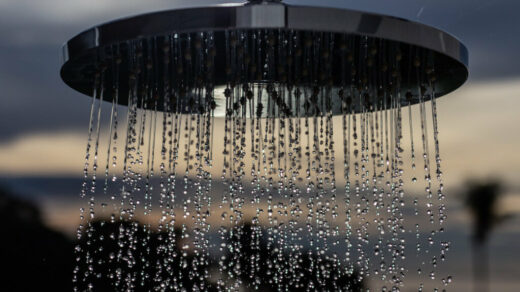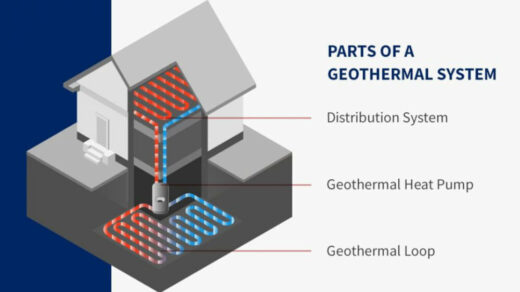Say Goodbye to Cold Showers: Why Tankless Water Heaters Are the Way to Go
To cut down on utility costs and waste, tankless water heaters are quickly becoming a popular choice for homeowners. When compared to traditional gas or electric water heaters with storage tanks, tankless models only heat water as it is being used. Costs associated with maintenance and running the system are minimized because energy is not constantly being consumed like in a more traditional model.
If you want to save money on your utility bills, implementing a tankless water heater is a smart move. The ordinary Cape Town household spends 14% of its annual energy budget on water heating, so upgrading to a more cost-effective model of water heater will result in significant cost savings. Let’s check out the pros and cons of both tank and tankless water heaters, as well as the various methods of putting them in place. To get in contact with nearby Cape Town plumbers for the repair or maintenance of a tankless water heater, check out this page.
Looking at these benefits, you can decide if a tankless water heater is the best option for your household in Cape Town.
It Only Operates When Hot Water Is Being Used
A tankless water heater may be preferable because it operates only when hot water is being used, rather than constantly. In addition, a lot of models have built-in safeguards that make them even less risky to use. Water heater function, flow rate, and water pressure can all be gauged with the help of a surveillance system. If a problem or threat is sensed, the system will automatically shut down thanks to safety controls. When you switch to a tankless water heater, you can stop wasting money on heating water 24 hours a day. The change has the potential to reduce your energy costs by 35%!
Space Efficiency
Tankless water heaters are more space-efficient than traditional models, whether they run on electricity or gas. As a result, they are more adaptable than standard water heaters and can be set up in limited spaces. A tankless propane water heater is up to 40% more efficient than a traditional storage-tank water heater. They can be up to 55% more efficient than conventional electric water heaters with storage tanks.
The Lifespan Is Longer
Tank water heaters have a lifespan of 20 years compared to 10 years without routine servicing from an expert. An adequate supply of hot water is guaranteed at all times with a tankless model. You won’t have to wait for a tank to replenish before you take a bath or shower.
The quality of a new tankless water heater is directly proportional to the skill of the plumber who inserts it. Finding a trustworthy service to install your new water heater is crucial to ensuring its proper functioning and long-term viability.
Considerations When Buying a Tankless Water Heater for Your House
Since heating water accounts for 14% of the average South African family’s annual electricity costs, it’s important to carefully consider which water heater model is appropriate for your home. Because that 14% adds up to a significant sum over a year, we thought we’d share some things to think about when choosing a tankless water heater for your home.
There are tankless propane water heaters and tankless electric water heaters, just like there are traditional tank water heaters. Gas and liquid propane are among the most commonly used fuel sources for tankless units because they provide more electricity; however, if your home doesn’t have direct connections to a gas source, the cost of installing gas lines may be too significant for your spending plan. Tankless water heaters that run on electricity can put a strain on your electrical system, so you may want to consider an upgrade if you go that route.
Flow Rates
A tankless water heater’s flow rate is a key factor in determining the right size for a given home. Before purchasing a new tankless water heater, it is important to estimate the family’s peak hot water usage so that you can ensure the unit can provide adequate hot water for the household’s needs. The real water usage percentage for your apartment’s equipment and fixtures is the best way to figure out the required flow rate, but if you don’t know, these estimates can help:
- Water flow rates from sink faucets range from 2.80 liters per min to 9.50 liters per min.
- The typical shower head uses between 8 and 4.5 liters of water per minute, but newer models use even less.
- 9.5–13.5 liters per minute for traditional shower heads of yesteryear.
- 13–16 liters per min for washing machines and dishwashers.
Cost
You could save money by purchasing a tankless water heater, but you might end up spending more on energy. Spending more upfront can enable you to save money in the long run on a new tankless system, so make sure to factor in both the initial investment and the ongoing maintenance costs.
Services for Setup and Upkeep
Professional installation is recommended for tankless water heaters due to their complexity. A plumber who is familiar with local regulations, power source installation, and system safeguards is essential. Putting in a new tankless water heater isn’t a task for a weekend handyman, so be sure to hire a reputable plumber.
Fixing Tankless Hot Water Heaters
Although tankless water heaters require little in the way of regular upkeep, any home appliance is subject to the occasional breakdown. Issues that may arise with a tankless water heater include:
- Failed ignition of the flame
- Inability to ignite
- Overloaded system
- Interrupted Air Flow
- An obstruction in the exhaust system
As soon as your tankless water heater’s effectiveness declines to the point where it can’t provide your family with an adequate supply of hot water, it’s time to call a plumber. When you have an urgent situation, you can usually get in touch with a plumber any time of the day or night.
Repairs for Tankless Hot Water Heaters
Even though they require very little upkeep, tankless water heaters do need occasional inspections and cleanings. A system’s useful life, with proper care, could easily exceed 20 years.
However, tankless water heaters may have issues in households with limescale. Minerals in the water system can build up on the heated evaporator and restrict water flow if they are allowed to settle there. As a result of this problem, the unit works harder than it needs to, driving up energy costs. In addition to reducing the system’s useful lifespan, this issue must be fixed. There is a risk that mineral construction will destroy the heated evaporator, leaving you with the high cost of a new system instead of maintenance. Descaling is a process used to eliminate minerals from tankless water heaters as part of routine servicing. A vinegar and water solvent is used to wash the system, after which the system is consistently rinsed to remove any remaining deposits.



